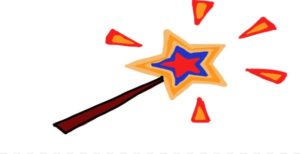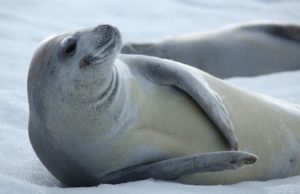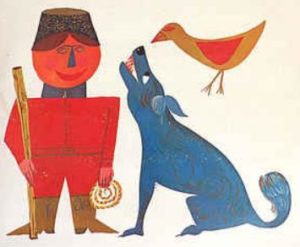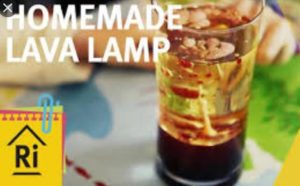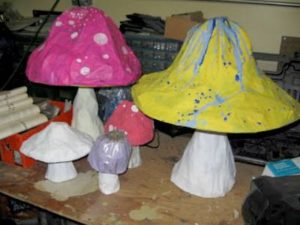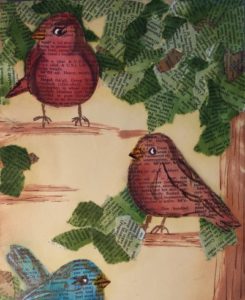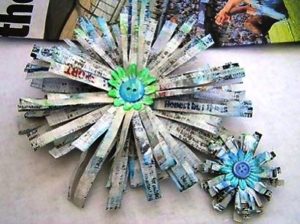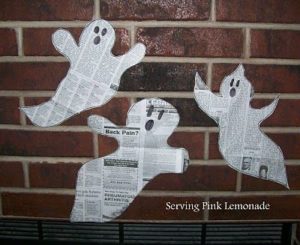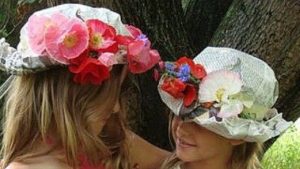Dear all
We hope that all of the children are enjoying getting back into their learning, either in school or at home this week. As we mentioned last week, the children in school are following the home learning set for those at home so that all of the children have the opportunity to access the same learning. It has been lovely to see lots of you in school and to catch up on what you have been doing in your time away. We hope it will be a fun half term to come!
Remember that there is no need to complete all of the learning below! The focus should be on maths, some aspects of the online English learning and reading and then maybe you could choose one other project to do from the home learning ideas? Or more if you want to obviously! Make this time at home enjoyable and treasure the time you are together having fun! Remember that you can send us a piece of the children’s work or an activity that they want to share every week on our class email addresses:
Turtleclass@stpeterswaterlooville.hants.sch.uk
Pufferfishclass@stpeterswaterlooville.hants.sch.uk
We would love to see what the children are getting up to at home!
Don’t forget to look at Sumdog for maths, reading and spelling challenges which will be updated each week. See also mymaths for maths challenges.
English reading and writing
To listen to a poem and act it out
https://www.thenational.academy/year-1/english/to-listen-to-a-poem-year-1-wk6-1
To identify rhyming words
https://www.thenational.academy/year-1/english/to-identify-rhyming-words-year-1-wk6-2
To identify onomatopoeia
https://www.thenational.academy/year-1/english/to-identify-onomatopoeia-year-1-wk6-3
To plan a poem
https://www.thenational.academy/year-1/english/to-plan-our-poem-year-1-wk6-4
To write a poem
https://www.thenational.academy/year-1/english/to-write-our-poem-year-1-wk6-5
In this weeks sequence of lessons you will be thinking about poetry. It would help if you had a magic wand!! You will be doing some phonics focusing on the sound ur (nurse), er (letter) and ir (first) as well as some spellings linked to the story.
If it is a bit tricky or moves too fast for your child just focus on the key phonics being taught, or one version of the sound that your child knows e.g. ur or er and on writing some simple sentences or key words. Maybe you could just work on one day of the online learning? Do what you feel your child can cope with.
Reading
We attach the link below because we feel it has some useful ideas. See page three. We are sure that you are doing many of them already!
Menu of reading response ideas KS1
Also see the Collins connect PDF (see blog post for link) for access to lots of books to read online.
ONLINE READING COLLINS CONNECT
Spelling
These are the spellings highlighted in the Oak Academy online English learning:
first, bird, fur, nurse, teacher, faster, some, into.
Most of these words are to reinforce the phonics learning this week. Some and into should be familiar to all of the children!
Maths
To solve word problems
https://www.thenational.academy/year-1/maths/to-solve-word-problems-year-1-wk6-1
To explore addition and subtraction
https://www.thenational.academy/year-1/maths/to-explore-addition-and-subtraction-year-1-wk6-2
To explore addition and subtraction
https://www.thenational.academy/year-1/maths/to-explore-addition-and-subtraction-year-1-wk6-3
To solve problems in context using addition and subtraction
To solve problems in context using addition and subtraction
Topic
Antarctic animals and how they have adapted for life in the freezer!
Look up the twinkl powerpoint ‘Antarctic animals: what can you see?’ and see if you can talk with your grown up about what you think the animal might be that has been hidden? What do you already know about the animal?
https://www.twinkl.co.uk/resource/antarctic-animals-what-can-you-see-powerpoint-t-tp-2549081
The second link takes you to a website which explains a little more about each animal and how they have adapted to the harsh cold environment in which they live. https://www.coolantarctica.com/Antarctica%20fact%20file/wildlife/antarctic_animal_adaptations.php
Talk this through with your adult. Do you think there are any animals in the British Isles that may need the same sort of adaptations? Why do you think that? Can you choose your favourite animal and write a fact file about how it has adapted for living in freezing conditions. Can you draw and label a picture too?
The second link takes you to a website which explains a little more about each animal and how they have adapted to the harsh cold environment in which they live. https://www.coolantarctica.com/Antarctica%20fact%20file/wildlife/antarctic_animal_adaptations.php
Talk this through with your adult. Do you think there are any animals in the British Isles that may need the same sort of adaptations? Why do you think that? Can you choose your favourite animal and write a fact file about how it has adapted for living in freezing conditions. Can you draw and label a picture too?
Music
Week 2- Grandfather
Listen to this short piece of music and find the picture of the bassoon.
What mood do you think Grandfather is in?
How do you think grandfather might move?
How is this music the same or different to Peter’s music?
Family Science Activity
https://www.rigb.org/families/experimental/homemade-lava-lamp
ExpeRiment with objects of different shapes and sizes. See what makes a difference to whether something sinks or floats in water.
Learn how an object’s density affects if something is likely to sink or float.
https://www.rigb.org/docs/lavalamp_infosheet_0_1.pdf
Questions to ask children:
- Before each activity: can you predict what will happen? Why do you predict that? (For example, can you predict what will happen when we squash the tin foil really tightly?
- Can you predict what will happen if we use metal spoon instead of a plastic one?
- Can you predict what will happen if we peel the fruit?) Why does the diet drink float while the non-diet one sinks?
- What do you think will happen when we pour the oil into the glass of water? Why?
- What do you think is in the bubbles that are rising up in the lava lamp? Why do you think they sink back down again?
Going Further:
- You can give your child or children a lump of plasticine and explore how to mould the plasticine into shapes that float. Discuss what the floating shapes have in common compared to shapes that sink.
- The density of an object affects its buoyancy. You can learn more about this and how density affects whether something sinks or floats here: http://bit.ly/
- Buoyancy You can try to make a ‘density tower’ by floating liquids of different density on top of each other, as shown in this video: http://bit.ly/DensityTower
- Here’s a quick lava lamp using fizzy water – http://bit.ly/FizzyLavaLamp
ART
Read all about it! St Peter’s are IN THE NEWS!
For this week’s Art Challenge I would like you to produce some art using old newspapers or magazines! It can be anything from cutting out shapes and creating your own abstract art, or landscape, to making something using Paper Mache. What you make can be left black and white or even painted (using watercolours is very effective). Whatever you create I’m sure you will ‘Make the headlines’ on the Art Blog!
Ideas to inspire you:
However, if this doesn’t appeal to you can still send any other art work to me and I will post that on the Blog too.
Please email your artwork to me:
n.pearson@stpeterswaterlooville.hants.sch.uk
Thank you
